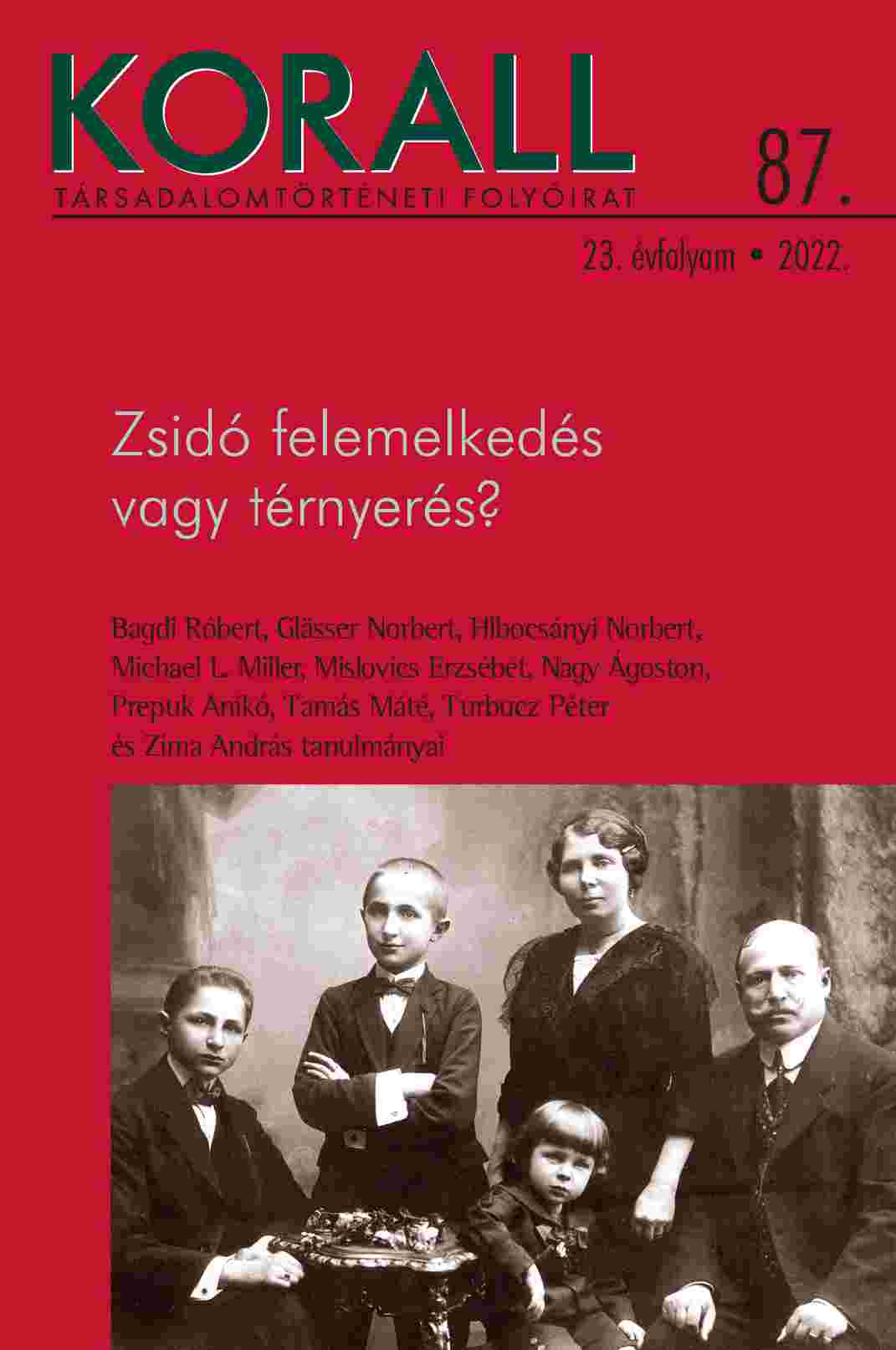Identitás, önreprezentáció, tudomány. Alexander Bernát és Marczali Henrik pályaíve a Budapesti Hirlap tükrében
Identity, Self-Representation, Scholarship: The Careers of Bernát Alexander and Henrik Marczali in Light of Their Works in Budapesti Hirlap
Author(s): Péter TurbuczSubject(s): 19th Century, Pre-WW I & WW I (1900 -1919), Interwar Period (1920 - 1939)
Published by: KORALL Társadalomtörténeti Egyesület
Keywords: Jewish intellectuals; ascension; assimilation; academic life; Magyarization; identity; media
Summary/Abstract: Examining the rise of neolog Jewish intellectuals of the post-1867 period, Bernát Alexander (1850–1927) and Henrik Marczali (1856–1940) are typically assessed on the basis of their role in scholarship and university life, as well as their academic achievements and status. They are among the few dozen Jewish intellectuals who have been internationally recognized as representatives of modern secularized scientific thought: living examples of the success of assimilation. They also belonged to the same generation, sharing not only the same erudition acquired at foreign universities, but also jobs, similar career paths, as well as religious beliefs and identity. Based on all these, posterity’s judgment of progress, successes, and failures, both theirs and their generation’s, has become almost like topoi. In contrast, the present study examines the careers of Alexander and Marczali in the light of their work as journalists at Budapesti Hirlap. The study examines how the two scholars’ decades-long friendship with editor-inchief Jenő Rákosi (1842–1929) and their journalistic work at the paper influenced their Hungarian–Jewish identity, self-representation, and academic work. We can also gain insights into their thinking about current affairs, and social and cultural initiatives. Analyzing their views in more detail than previous biographical studies reveals how their press publications related to their academic work, and whether they helped to promote the social acceptance of Jews in general. The study also sheds light on how the editorial staff of the Budapesti Hirlap helped Alexander and Marczali shape their own careers, and to what extent their nationalistic understanding of their role was embraced by a paper that was seen as one of the most important media of the Austro-Hungarian Monarchy’s agenda of Hungarianization.
Journal: Korall - Társadalomtörténeti folyóirat
- Issue Year: 2022
- Issue No: 87
- Page Range: 167-197
- Page Count: 31
- Language: Hungarian

